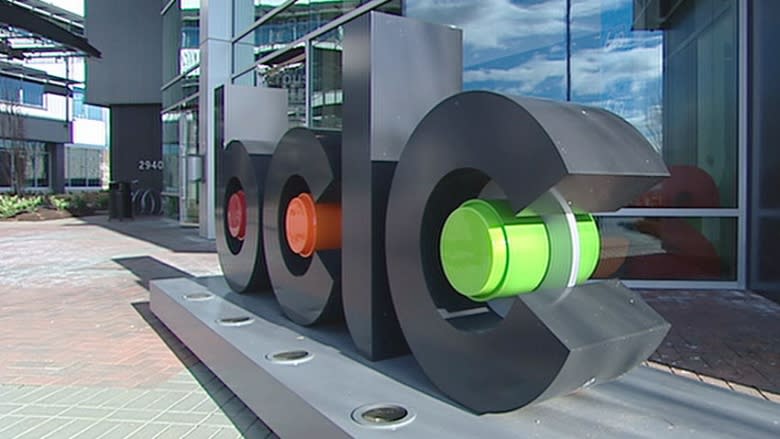$50M Lotto Max mystery deepens as BCLC tries to verify winner
It's usually a formality.
But a B.C. Lottery Corporation winner verification process that normally takes days has stretched out to six weeks as security officials try to confirm a mysterious claimant's right to a $50-million Lotto Max prize.
"It is unusual," said BCLC spokeswoman Laura Piva-Babcock. "However, it all is a case by case basis, and it takes as long as it takes until we're satisfied that we have verified the winner."
Considerable controversy
The claimant was already the subject of considerable controversy.
The draw for the prize took place March 14, 2014, but the winner didn't come forward for a year, sparking speculation about the whereabouts of the ticket, which was bought in Langley, B.C.
In the meantime, the promise of the hidden jackpot sparked a lawsuit between members of a Shoppers Drug Mart lottery pool who believe one of their group was hiding the ticket.
The winner stepped forward March 9, days before the deadline to claim the prize.
But then — nothing.
All prize winners have to establish a rightful claim, either by themselves or as part of a group. That involves proving the provenance of the ticket.
Piva-Babcock wouldn't speak to the details of the delay.
"There's different layers to the process. We do have a security team. Anyone who comes forward with a major prize, they will be interviewed by someone from our security team," she said.
"People want to know that these steps will be taken so that the prize will be paid out to the right person at the end of the day."
Rare exceptions
Recent news reports suggest the winner would like to remain anonymous.
But lottery corporations only grant anonymity to winners in rare circumstances.
Exposes about crooked ticket sellers have led to almost uniform insistence on transparency in the industry. BCLC says one of the conditions of claiming a prize is consenting to the release of your name and photo as the winner.
But there are exceptions.
In 2008, Western Canada Lottery Corp. agreed to keep the identity of a Winnipeg man secret after he won $3 million.
At the time, a corporation spokeswoman explained that exemptions might be made for prison guards and police officers who work undercover.
The licensed operator of the UK National Lottery, Camelot, offers winners the choice of anonymity.
And six U.S. states also allow lottery winners to keep their identities private: Delaware, Maryland, Kansas, North Dakota, Ohio and South Carolina.
In pushing for anonymity, U.S.legislators have argued more than just embarrassment is at stake.
In 2013, a Chicago dry-cleaner was poisoned with cyanide hours after collecting on a $1-million scratch-and-win prize. And a Florida woman was convicted of murdering a man who publicly won a $30-million jackpot in 2006. She had befriended him, killed him, buried him in her yard and then took control of his assets.
Hidden ticket?
Even before the $50-million Lotto Max prize winner stepped forward, the mystery of the ticket led to a lawsuit in B.C. Supreme Court which is still outstanding.
In a notice of civil claim, Gayleen Elliott claimed Shoppers Drug Mart co-worker Salbir Sidhu was concealing the winning ticket from their employee pool.
She claimed he usually purchased tickets for the group, but allegedly lied about the March 14 draw, saying he forgot to purchase a ticket when he was actually in possession of the jackpot winner.
In his response, Sidhu claimed he really did forget to buy the March 14 tickets, but mixed up the dates in his dealings with the other members of the pool. None of those allegations have been proven in court.
Chinese lottery officials have come up with a unique solution to the anonymity question.
Winners are allowed to pick up their prizes dressed in costume, a practice that has led to some very strange ceremonies involving puffy cartoon figures and a giant yellow bear.
BCLC eventually hopes to prove the Lotto Max winner is a non-fictional character.




